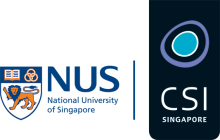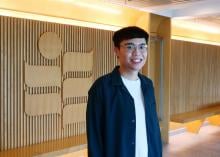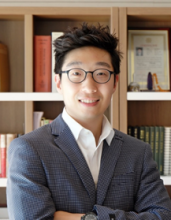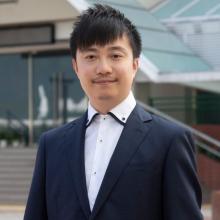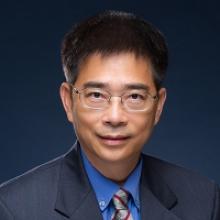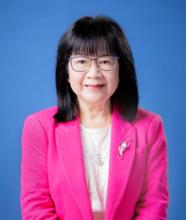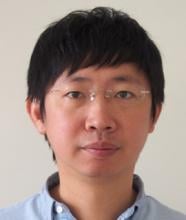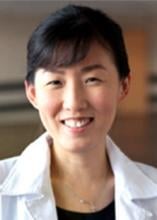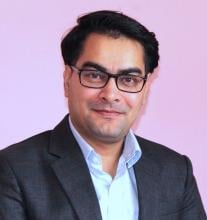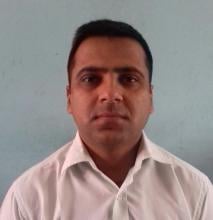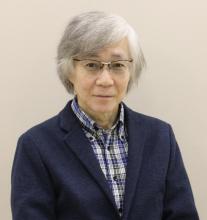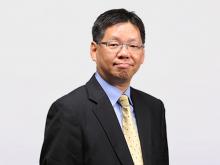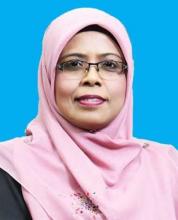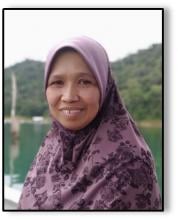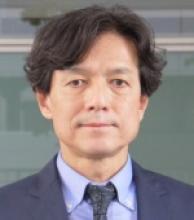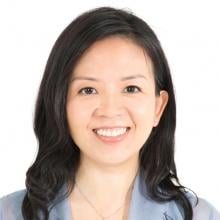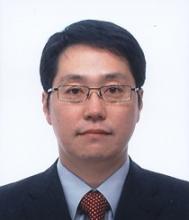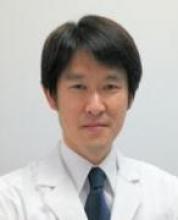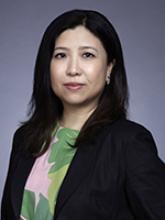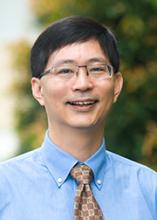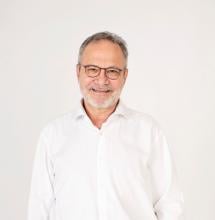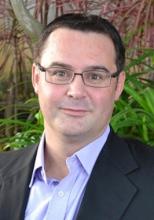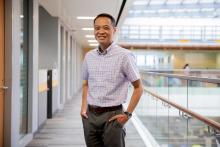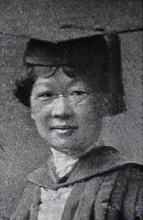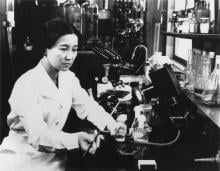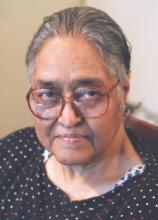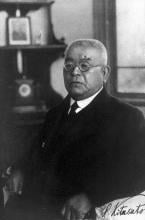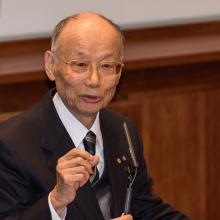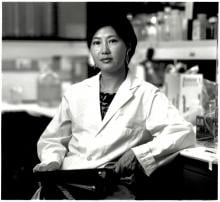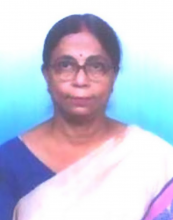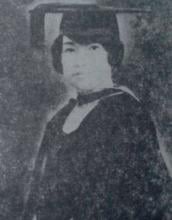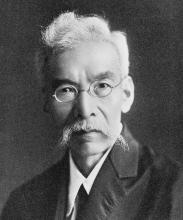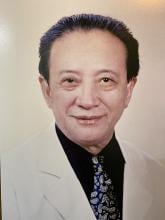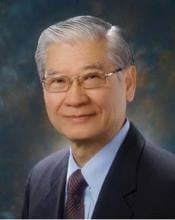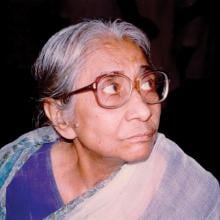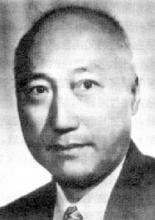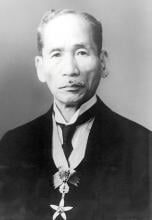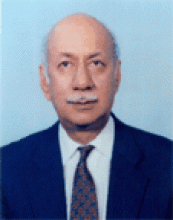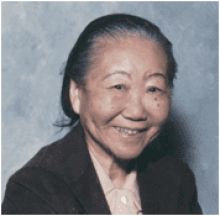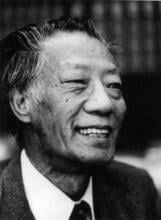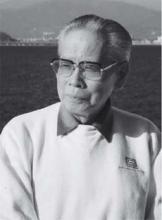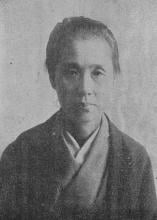Health
News
07 Feb 2024
Elucidating why some patients with specific joint deformities are symptomatic while others are not
02 Feb 2024
Asia Research News monitors the latest research news in Asia. Some highlights that caught our attention this week are how exercising to music can help cognitive function, a material inspired by a mythological creature, and choking cancer cells using calcium.
30 Jan 2024
A team of researchers from Osaka Metropolitan University assessed the feasibility of conducting cardiopulmonary exercise testing with the upper limbs as an alternative to the conventional method that uses the lower limbs. The researchers investigated the relationship between heart rate and oxygen uptake during exercise stress tests using a cycle ergometer and an arm crank ergometer, and estimated maximal oxygen uptake. The study participants were 17 male collegiate athletes from rowing and cycling clubs. The results showed that the estimated maximal oxygen uptake for both rowing and cycling groups was lower on the arm crank ergometer than on the cycle ergometer. Additionally, this study showed that exercise testing using an upper extremity ergometer underestimates cardiopulmonary function, regardless of upper limb training status.
29 Jan 2024
A new technology to increase visibility of cancer cells to the immune system using CRISPR has been developed, and could lead to a new way to treat cancer.
22 Jan 2024
A water-soluble, luminescent europium complex enables evaluation of malignancy grade in model glioma tumor cells.
19 Jan 2024
Asia Research News monitors the latest research news in Asia. Some highlights that caught our attention this week are watching plants warn each other of danger, how even “harmless” addictions can have a serious side effects, and how to clear roads and railways faster using gold nanorods.
16 Jan 2024
7000 forever chemicals (PFAS) and human PPARa binding properties predicted using AI technology
12 Jan 2024
Asia Research News monitors the latest research news in Asia. Some highlights that caught our attention this week are how a King Kongesque ape went extinct, how antibodies can make you dizzy, and a material that can break down harmful chemicals using the sun.
12 Jan 2024
Tohoku University researchers have unveiled a new approach to treating lymph node metastasis. The process invovled administering anticancer drugs directly into the lymph nodes, producing better outcomes and lessening the side effects commonly associated with cancer treatment.
11 Jan 2024
Researchers from Osaka University found that CD4+ T cells can be classified into 18 categories and 12 distinct gene programs, and that characteristic changes in CD4+ T cell profiles are associated with autoimmune disease, sex, and aging. Analysis of these distinctive immune cell profiles could be used to predict autoimmune disease in the future, paving the way for precision medicine.
05 Jan 2024
Asia Research News monitors the latest research news in Asia. Some highlights that caught our attention this week are self-sacrificing cancer cells, tiny new drones that kill cancer cells and a living “skin” that covers the Great Wall of China.
22 Dec 2023
Researchers from Osaka Metropolitan University assessed the correlation between human mobility restrictions and the medical costs associated with lifestyle-related diseases during the COVID-19 pandemic in Japan. A cross-sectional study revealed that an increase in walking and public transit use was associated with reduced medical costs of lifestyle diseases. These findings implicate governments to take measures other than restricting walking and public transit during pandemics and emphasize the importance of walkable cities.
21 Dec 2023
Researchers from Osaka University have shown that the rare D-form of the amino acid alanine shows a clear circadian rhythm, and is able to affect the circadian clock and regulate gluconeogenesis, a method of glucose release, in the kidney. D-alanine upregulates genes linked to both gluconeogenesis and the circadian rhythm through the circadian transcriptional network. D-alanine is linked to many metabolic and immunological diseases, and this mechanistic insight could potentially lead to novel therapeutic approaches.
18 Dec 2023
Researchers identify RBFox1 as a key intrinsic regulator of heart muscle cell maturation, overcoming a major limitation in cardiac regenerative therapy and disease modelling and demonstrating for the first time that RNA splicing control can significantly impact this process.
13 Dec 2023
"Amaterasu" particle: a new cosmic mystery, Geckos inspire robotic device, Targeting cancer while protecting healthy cells, Honey, I shrunk the bear, Two species lost to science spotted again. Plus New Science Communication Resources. Read all in the latest Editor's Choice.
08 Dec 2023
Asia Research News monitors the latest research news in Asia. Some highlights that caught our attention this week are how eels can transfer DNA, older babies falling for tricks that younger ones do not, and a crystal layer deep in the Earth.
07 Dec 2023
Chronic wounds cost Singapore an estimated SGD$350 million a year, accounting for approximately 0.07% of its Gross Domestic Product (GDP). The amount is a significant economic burden, considering that the country spends 4% of its GDP on healthcare. This is according to the first local study that has quantified the national cost of chronic wounds in a multi-ethnic Asian population. The research, conducted by scientists and clinicians at eight institutions in Singapore, was led by Duke-NUS Medical School and the Agency for Science, Technology and Research (A*STAR).
05 Dec 2023
While anger and aggression are instinctive behaviors found across many species, leaving these emotions unchecked can lead to conflict and violence. In a recent study, researchers at Tohoku University demonstrated that neuronal-glial interactions in the cerebellum determine the degree of aggression exhibited by mice. This suggests that future therapeutic methods could adjust glial activity in the cerebellum to help reduce unwanted aggression.
05 Dec 2023
World-renowned professors from six leading institutions in four countries launched the Pandemic Research Alliance (PRA) today (4 December) to drive concerted research into respiratory viruses from animals to humans, improved surveillance, and new solutions to better manage the next pandemic.
04 Dec 2023
Pregnancy brings a rise in pancreatic beta cells – the cells that produce insulin. Shortly after birth, these cells return to their normal levels. The mechanisms behind this process had remained a mystery. But now a research group has revealed that white blood cells called macrophages ‘eat’ these cells.
04 Dec 2023
Decreasing pancreatic beta cell numbers – the only cells that produce insulin – is a leading cause of diabetes. In a promising development, a research group has revealed that stimulating autonomic vagal nerves connected to the pancreas can improve the function and also increase the number of pancreatic beta cells in mice.
01 Dec 2023
Asia Research News monitors the latest research news in Asia. Some highlights that caught our attention this week are hungry, grumpy bears that don’t sleep, solving a 200-year-old mystery about dolomite, and how yoga can help people with epilepsy.
30 Nov 2023
The report, titled "Pathways for transforming the cancer ecosystem: A patient-centred framework" was compiled from more than 100 interviews with key stakeholders including patients, patient support organisations and other community groups, clinicians, researchers, multiple industries, and healthcare decision-makers.
30 Nov 2023
An international team of researchers led by Osaka Metropolitan University has elucidated the process by which the major flavonoids naringenin, apigenin, and genistein are metabolized in the body. These findings are fundamental in elucidating the correlation between the metabolism of flavonoids in the body and their potential health benefits.
27 Nov 2023
A research team from Osaka Metropolitan University has successfully developed a novel pneumococcal vaccine by combining the team’s proprietary mucosal vaccine technology with pneumococcal surface proteins that can cover a wide range of serotypes. Experiments were conducted using mice and macaques and it was confirmed that pneumonia caused by pneumococcal infection was clearly suppressed in the target groups of animals inoculated with the vaccine.
24 Nov 2023
Asia Research News monitors the latest research news in Asia. Some highlights that caught our attention this week are screentime changing children’s brains, a bacterium that can help reduce toilet time, and a reproductive strategy that is definitely not the butt of the joke.
21 Nov 2023
Researchers develop new method suppressing the distribution of drugs to healthy tissues, but also to rapidly removes the drugs once distributed in the body, which could improve the accuracy of imaging diagnosis of difficult cancers, reduce toxicity to healthy tissues, and furthermore improve the effectiveness of treatment.
17 Nov 2023
Asia Research News monitors the latest research news in Asia. Some highlights that caught our attention this week are sea cucumbers that glow in the dark, a needle that softens at body temperature, and the real size of our sun.
17 Nov 2023
Researchers from Osaka University found that Japanese people who used medical information were more likely to wear masks and disinfect their hands even before the COVID-19 outbreak, while those who exchanged information with acquaintances were more likely to newly start mask-wearing and hand disinfection post outbreak. This will assist in the development of risk communication strategies to promote infection-preventive behavior in a timely manner.
Events
18 Nov 2020
The Asia-Pacific Agri-Food Innovation Summit will focus on accelerating innovation in supply chain resilience, urban food systems, alternative proteins, and affordable nutrition. Will you be joining the conversation virtually on November 18-20?
27 Nov 2020
ACRLS 2020 aims to contribute to strengthening cooperation and relationship among members worldwide and forming a strong global network by providing various benefits to robotic clinics in rapidly growing nations throughout Asia.
25 Nov 2020
Asia's Leading Pharma & Bio Tech Show will be held as scheduled from November 25-27, 2020 at Makuhari Messe, Japan. It will be held both on-site and online.
10 Nov 2020
A gathering of healthcare leaders, key government representatives and healthcare IT experts, this conference provides an exclusive platform for you to network with your important stakeholders in Singapore’s healthcare industry.
16 Nov 2020
Optimising Clinical Trials | Commercialising Great Science | Partnering for Growth
02 Nov 2020
We invite scientists, doctors, students and other delegates engaging in scientific research related to cancer to join us at Singapore’s preferred cancer conference.
01 Oct 2020
The 6th annual RNA Biology Symposium jointly organized by the RNA Biology Centre of CSI Singapore (NUS), Skin Research Institute of Singapore (A*STAR), Duke-NUS Medical School, School of Biological Sciences (NTU) and Singapore-MIT Alliance for Research and Technology (SMART)
The Khwarizmi International Award (KIA) acknowledges the efforts made by researchers, innovators and inventors from across the globe and to appreciate their high quality research work and contributions to different fields of science and technology.
26 Jun 2020
Flattening the Curve with Digital Health: Episode 7 - Australia
18 Jun 2020
Flattening the Curve with Digital Health: Episode 6 - Thailand
10 Jun 2020
Flattening the Curve with Digital Health: Episode 5 - Japan
23 Sep 2020
Adapting to COVID 19, and driving a pivotal change in drug trials, market penetration, pricing and regulatory compliance
02 Sep 2020
Celebrating and learning from COVID 19 success stories to shape new frontiers in patient experience, healthtech and innovation.
14 Oct 2020
Asia's Premier Partnering Event for the Global Biotechnology Industry. This year’s exhibition will be held as originally planned at Pacifico Yokohama. BioJapan partnering is available both physically and virtually. Plus some seminars will be available online.
22 Jul 2020
Due to the COVID-19 pandemic affecting international travel, this year's event will be a unique blend of online and live gatherings — BIO Asia–Taiwan 2020 Online + Live, to be held July 22-26 in Taipei, Taiwan.
09 Dec 2020
Singapore's long-running Pharmaceutical Manufacturing Industry learning and networking event, featuring a stellar profile of C-suite experts and firms.
03 Nov 2020
Your go-to event to reach out to key decision makers in the pharmaceutical industry. The event will be delivered digitally from 3-5 November 2020.
17 Jul 2020
Asia’s annual premier healthcare platform CAREhab 2020 and conference element 6th Singapore Rehabilitation Conference, will now be held online on the 17 – 18 July 2020.
07 Jul 2020
IMAPAC is bringing to you 3 focus areas: Bio-Manufacturing, Bio-Analytics, and Cell Therapy Bioprocessing as part of Asia's biggest, most focussed annual bioprocessing virtual conference!
09 Dec 2019
The ASEAN Emerging Researchers Conference is a flagship programme of the ASEAN Young Scientists Network; the official platform for young researchers in the region.
08 Dec 2020
Asia's pharma & biotech virtual festival - Phar-East is the premier meeting place for senior executives from Asia’s pharma and biotech industry.
26 Nov 2019
Vaccine World Asia 2019 will bring together leading experts to discuss the latest technological advancements and spearhead scientific innovation in the development and manufacture of vaccines for key diseases such as Dengue, Chikungunya, Malaria, Tuberculosis etc.
02 Oct 2019
Launching on 2nd October 2019 in Singapore
13 Jan 2020
Duxes is pleased to announce the launch of the Smart Wearable Device Asia Pacific Summit 2020 (SWAP), that will take place in Shenzhen, China. January 13-14. This upcoming event aims to meet the latest demands of companies in the smart wearable device market, shedding light on current hot topics, industry concerns and the latest innovations.
07 Oct 2019
Tracks include: Sustainability & Growth; Patient Experience; Unlocking the Value of AI; Value-based Care.
24 Sep 2019
The leading event that brings together Asia’s pharmaceutical companies and supplies all in one place
Researchers
Professor Gail Tripp is a neurobiologist who established the OIST Children’s Research Center to undertake research on the nature, etiology and management of ADHD with English and Japanese speaking children and families.
Dr Singh is working as an Additional Professor of Radiology. Besides specializing in medical Imaging, he has received certifications in Global Health, Science Diplomacy and Biomedical Research. His areas of interest and expertise are as follows: Radiology, Nuclear Medicine, Medicine, Health, Public Health, Global Health, Health Policy, Health Systems, evidence-based healthcare and Healthcare leadership.
A PhD student in the health sciences department, studying population studies in health. A graduate student researcher at the University of Lethbridge, under the guidance of Dr. Olu Awosoga and Dr. Hendrika Beaulieu. Majoring in Indigenous health and conducting research on perceived mental and general health status of Indigenous women with chronic illnesses, relating to past experiences of discrimination, trauma and racism. Also focusing on the impact of health policies on the perception of wellness and health. Prior to coming to Canada, worked under the supervision of the UNHCR in Malaysia in project on the access and utilization of healthcare services among refugees. Holds an MSc in public health from the International Medical University and a Bachelor degree in Dental Surgery from Sana’a University.
The Chinese University of Hong Kong (CUHK)
Professor Winnie Mak Wing-sze is the director the of Diversity and Well-Being Laboratory and currently a Professor at the Department of Psychology, the Chinese University of Hong Kong.
The Education University of Hong Kong (EdUHK)
Dr. Randolph Chan's research areas focus on the mental health and positive development of youth from marginalized populations with a particular emphasis on sexual and gender minorities.
Hong Kong Baptist University (HKBU)
Dr. Iyaswamy Ashok is currently a Research Assistant Professor at School of Chinese Medicine.
Daegu Gyeongbuk Institute of Science and Technology (DGIST)
Minseok S. Kim is an Assistant Professor of New Biology at Daegu Gyeongbuk Institute of Science & Technology (DGIST)
The Education University of Hong Kong (EdUHK)
Dr. Henry Ho is a Registered Psychologist (RP) of the Hong Kong Psychological Society and a Chartered Psychologist (CPsychol) of the British Psychological Society. His current research aims to examine the impact of psychological capital on work performance and well-being.
Hong Kong Baptist University (HKBU)
Prof. Cai Zongwei is now the Chair Professor of Chemistry in the Department of Chemistry and Director of both State Key Laboratory of Environmental and Biological Analysis as well as Dioxin Laboratory, Hong Kong Baptist University.
Lingnan University (LU)
Lam Woo & Co Ltd Chair Professor Siu Oi-ling is Chair Professor teaching psychology courses. Her research interests are in Occupational Health Psychology, specifically occupational stress, psychology of safety and work-life balance.
The Education University of Hong Kong (EdUHK)
Dr. Brian Man Yu Bon is currently serving as an Assistant Professor in Department of Science and Environmental Studies, The Education University of Hong Kong.
Duke-NUS Medical School
Dr Kwa is currently a Pharmacy Clinician Scientist and Assistant Director, Pharmacy (Research), at the Singapore General Hospital. She specializes in critical care medicine, infectious diseases and antimicrobial resistance research.
Suraj Bhattarai is a global health specialist and tropical medicine physician with research interests in infectious disease epidemiology and surveillance, health systems, and urban health. He is a co-founder and research fellow at the Global Institute for Interdisciplinary Studies, a Kathmandu-based academic institute that promotes and conducts interdisciplinary research. He is a member of Global Young Academy and an Alumni steering committee member of IAP-Young Physician Leaders Programme. He obtained medical training in Nepal and masters in Tropical Medicine & International Health from the LSHTM, UK.
I am a Health Economist/Researcher, working with UN agencies in the development of policy documents for developing countries including Nepal, Ethiopia and Pakistan.
Osaka City University
Takashi Hashimoto's major expertise is clinical and basic research for both autoimmune bullous diseases and hereditary skin diseases.
The Education University of Hong Kong (EdUHK)
Professor Chou has wide research interests in areas concerning geriatric psychiatry, elderly policies, population policy especially immigrant policy, poverty, welfare reform, income inequality and health policy.
International Islamic University Malaysia (IIUM)
Dr. Salizar Binti Mohamed Ludin is an Assoc. Prof at the Kulliyyah of Nursing of International Islamic University Malaysia.
Universiti Teknologi MARA (UiTM)
Department of Microbiology / Biomolecular Sciences
Universiti Teknologi MARA
Malaysia
The Education University of Hong Kong (EdUHK)
Dr. Louisa Chung is a Registered Nutritionist of Association for Nutrition (UK) with ten years experience in weight management and physical fitness projects. She is now working on an innovative dietary intake method which aims better result in weight loss and nutrition education.
Osaka City University
Akira Kaneko was appointed as Professor of Parasitology of Osaka City University in 2010. Since then, he has conducted global health research with a particular focus on malaria elimination on islands in Vanuatu, Oceania and Lake Victoria, Kenya.
The Education University of Hong Kong (EdUHK)
Dr Esther Lau specializes in clinical psychology and clinical neuropsychology. Currently, her primary line of research aims to uncover some of the complex relationships between sleep, emotional and cognitive functioning.
Osaka City University
Prof. Jun-Seok Oh is currently working at the Graduate School of Engineering, Osaka City University, He does research in Experimental Plasma Physics and is currently interested in atmospheric pressure plasma applications, 'Plasma Medicine' and 'Plasma Agriculture'.
Osaka City University
Eriko Kage-Nakadai is a professor at the Graduate School of Human Life Science of Osaka City University.
Osaka City University
Kazuhisa Asai is currently an associate professor at the Graduate School of Medicine of Osaka City University.
The Education University of Hong Kong (EdUHK)
Dr.Anna Kam's research interests include advanced technologies in aural rehabilitation, automated hearing screening, tinnitus management and auditory processing.
The Education University of Hong Kong (EdUHK)
Dr. Yuen has dual professional qualifications as an audiologist and a speech-language pathologist (or speech therapist). He is also an experienced cochlear implant clinical specialist audiologist.
Duke-NUS Medical School
Prof. Patrick Tan's research focuses on developing genomic approaches to unlock the molecular and clinical diversity of gastric cancer (aka stomach cancer)- a leading cause of global cancer mortality.
Duke-NUS Medical School
Prof Matchar's research relates to clinical practice improvement - from the development of clinical policies to their implementation in real world clinical settings
Duke-NUS Medical School
Prof Smith’s research programme primarily investigates the ecology and evolution of zoonotic viruses and the molecular epidemiology of human respiratory pathogens.
Duke-NUS Medical School
Professor Ooi Eng Eong is a clinician-scientist by training and his research on dengue is positioned at the interface between clinical epidemiology, virology and immunology. His laboratory is interested in how antibodies either protect against or enhance dengue virus infection and what viral factors influence epidemic dengue activity.
Giants in history
Chinese biochemist Chi Che Wang (1894 - 1979), one of the first Chinese women to study abroad, advanced to prominent research positions at American institutions including the University of Chicago and the Northwestern University Medical School.
Ruby Sakae Hirose (1904 – 1960) was a Japanese-American scientist whose research contributed significantly to our understanding of blood clotting, allergies and cancer.
Flora Zaibun Majid ( 1939–2018) was an accomplished Bangladeshi researcher in botany and nutrition science and the first female chairperson of the Bangladesh Council of Scientific and Industrial Research.
Iranian physician and bacteriologist Azar Andami (8 December 1926 – 19 August 1984) developed a cholera vaccine to combat an outbreak that swept through the Middle East, India, Southeast Asia, and Africa in 1937.
Irene Ayako Uchida’s (8 April 1917 – 30 July 2013) strides to understand genetic diseases such as Down syndrome paved the way for early screening of chromosomal abnormalities in foetuses.
Baron Kitasato Shibasaburo (29 January 1856 – 13 June 1931) was a Japanese physician and bacteriologist whose work led to a new understanding of preventing and treating tetanus, diphtheria and anthrax.
Maggie Lim (5 January 1913 – November 1995) was a Singaporean physician who promoted family planning and expanded the access to clinics to improve the quality of life for mothers and children in Singapore’s early days.
By isolating soil microorganisms and studying the compounds they produce, Satoshi Omura (born 1935) discovered almost 500 organic compounds with unique properties that were produced by these microorganisms, including many new antibiotics.
The founder of the Adyar Cancer Institute in India, Muthulakshmi Reddy (30 July 1886 – 22 July 1968), fought to uplift women and girls from impoverished situations.
Chinese-American virologist and molecular biologist Flossie Wong-Staal (27 August 1946 – 8 July 2020) was the first scientist to clone HIV and determine the function of its genes.
Maharani Chakravorty (1937 – 2015) was one of India’s earliest molecular biologists whose research paved the way for advances in the treatment of bacterial and viral infections.
Archana Sharma (16 February 1932 - 14 January 2008) conducted research into plant and human genetics that expanded the understanding of both botany and human health. In relation to botany, she uncovered the means by which asexually-reproducing plants evolve into new species.
The first Thai woman to receive a degree in medicine, Margaret Lin Xavier (29 May 1898 – 6 December 1932), is best remembered for her compassion towards her less privileged patients.
In 1915, pathologist Katsusaburo Yamagiwa and his research assistant Koichi Ichikawa became the first to prove that chronic exposure to chemicals can cause cancer.
Filipino chemist and pharmacist Manuel A. Zamora (29 March 1870 – 9 July 1929) is best remembered for his discovery of the tiki-tiki formula to combat beriberi, a disease caused by Vitamin B1 deficiency.
After witnessing death and suffering as a youth in his home village during World War II, Nguyễn Tài Thu (6 April 1931 – 14 February 2021) set his sights on alleviating pain by becoming a doctor. After studying Traditional Chinese Medicine in China in the 1950s, Thu returned to Vietnam to serve in military hospitals. Eventually, he became the country’s foremost practitioner of acupuncture, a technique he first learned by inserting needles into himself.
David T. Wong (born 1936) is a Hong Kong-born American neuroscientist who is best known for discovering the antidepressant drug fluoxetine, better known as Prozac.
Indian organic chemist Asima Chatterjee (1917 to 2006) studied the medicinal properties of plant products, especially compounds known as vinca alkaloids.
Hsien Wu (24 November 1893 – 8 August 1959) is widely regarded as the founder of biochemistry and nutrition science in China. He was the first to propose that protein denaturation was caused by the unfolding of the protein, instead of chemical alteration.
Umetaro Suzuki (7 April 1874 – 20 September 1943) was a Japanese scientist best remembered for his research on beriberi, a disease caused by vitamin B1 deficiency, characterized by limb stiffness, paralysis and pain.
Syed Qasim Mehdi (13 February 1941 – 28 September 2016) was a Pakistani molecular biologist who was a founding member of the Human Genome Diversity Project (HGDP), which assessed human diversity by studying human migration, mutation rates, relationships between different populations, genes involved in height and selective pressure.
Tsai-Fan Yu (1911 – 2 March 2007) was a Chinese-American physician and researcher who was the first female full professor at Mount Sinai School of Medicine. She discovered that gout, a condition characterized by the painful inflammation of joints, was caused by elevated levels of uric acid in the bloodstream.
Min Chueh Chang (10 October 1908 – 5 June 1991) was a Chinese-American biologist who studied fertilization in mammalian reproduction.
A Japanese surgeon, Tetsuzo Akutsu (20 August 1922 – 9 August 2007) built the first artificial heart capable of keeping an animal alive.
Ogino Ginko (3 March 1851 – 23 June 1913) was the first registered female doctor to practise modern medicine in Japan.



